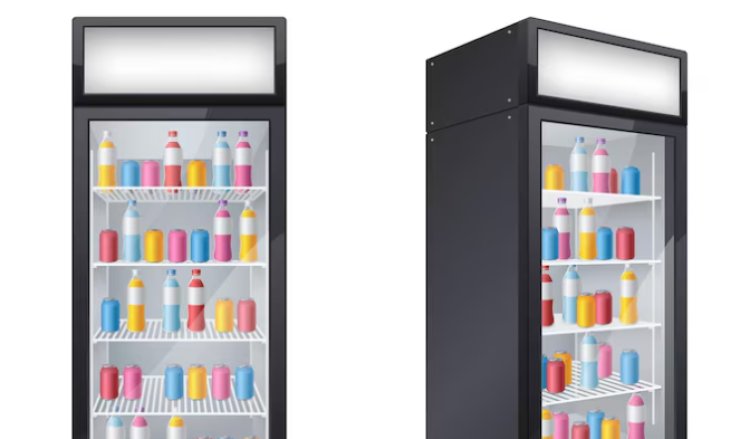The Role of Refrigeration in Your Kitchen's Daily Operations
This article delves into the multifaceted role of refrigeration in your kitchen and why investing in quality equipment is crucial for culinary success.
Share this Post to earn Money ( Upto ₹100 per 1000 Views )

In any kitchen, whether it’s a bustling restaurant or a cozy home setup, refrigeration equipment plays a pivotal role in daily operations. Proper refrigeration is essential not only for food safety and preservation but also for enhancing efficiency, managing inventory, and ensuring a smooth workflow. This article delves into the multifaceted role of refrigeration in your kitchen and why investing in quality equipment is crucial for culinary success.
Ensuring Food Safety
One of the primary functions of refrigeration equipment is to maintain food safety. Keeping food at the correct temperatures helps prevent the growth of harmful bacteria, which can lead to foodborne illnesses. Here are a few key aspects:
Temperature Control
-
Proper Storage: Refrigeration equipment should maintain temperatures at or below 40°F (4°C) for refrigeration and 0°F (-18°C) for freezing. This ensures that perishable items, such as meats, dairy, and produce, remain safe for consumption.
-
Monitoring: High-quality refrigeration units often come with built-in digital thermostats and alarms that alert kitchen staff if temperatures fluctuate outside of safe ranges. This feature is essential for maintaining compliance with health regulations and ensuring customer safety.
Inventory Management
Refrigeration equipment plays a crucial role in managing your kitchen inventory effectively. A well-organized and properly functioning refrigeration system can help streamline operations:
-
Accessibility: With efficient refrigeration, ingredients are easy to access, reducing the time spent searching for items during meal preparation. This efficiency is vital during busy service hours, where every second counts.
-
Reduced Waste: By ensuring that food is stored correctly, refrigeration helps to minimize spoilage. This is particularly important in high-volume kitchens where large quantities of fresh ingredients are used daily. Proper organization and storage can lead to significant cost savings.
Supporting Culinary Efficiency
The operational efficiency of a kitchen often hinges on the quality and functionality of its refrigeration equipment. Here’s how it contributes to a smoother workflow:
Preparation and Cooking
-
Prep Areas: Refrigeration units, such as under-counter refrigerators, provide easy access to ingredients right where they are needed. This minimizes unnecessary movement around the kitchen, allowing chefs to focus on preparation and cooking.
-
Temperature Regulation for Cooking: Some dishes require specific temperature control during preparation. For example, keeping ingredients cold for salads or pastries is essential. Refrigeration equipment ensures that these items remain at optimal temperatures until they are ready to be used.
Storage Solutions
The variety of refrigeration equipment available allows kitchens to adapt to their specific needs:
-
Walk-In Coolers and Freezers: These large units are perfect for storing bulk items and can be configured to keep different types of food at appropriate temperatures.
-
Reach-In Refrigerators: Ideal for quick access to ingredients, reach-in models enable chefs to grab what they need without disrupting the flow of service.
Enhancing Menu Flexibility
With the right refrigeration equipment, kitchens can offer a diverse menu that changes with seasons and customer preferences:
Seasonal Ingredients
-
Fresh Produce: Effective refrigeration allows chefs to stock up on seasonal fruits and vegetables, ensuring that they have a variety of ingredients available for creative dishes.
-
Menu Rotation: A well-maintained refrigeration system enables restaurants to experiment with new menu items and rotate seasonal offerings without the risk of spoilage.
Bulk Purchasing
-
Cost Savings: Restaurants that invest in ample refrigeration capacity can buy in bulk when prices are lower, reducing food costs. Proper storage ensures that these ingredients remain fresh until they are used.
Sustainability and Energy Efficiency
In today’s eco-conscious market, sustainability is a significant consideration for any kitchen. Investing in energy-efficient refrigeration equipment can contribute to a restaurant's overall sustainability goals:
Energy Consumption
-
High-Efficiency Units: Modern refrigeration systems are designed to consume less energy while maintaining optimal performance. By choosing ENERGY STAR-rated equipment, kitchens can reduce their carbon footprint and lower utility bills.
-
Proper Maintenance: Regular maintenance of refrigeration equipment, including cleaning coils and checking seals, can enhance efficiency and prolong the lifespan of the units.
Waste Reduction
-
Composting and Recycling: By minimizing food waste through effective refrigeration, kitchens can contribute to sustainability initiatives. Any spoilage can be reduced by ensuring proper storage and inventory management.
Conclusion
The role of refrigeration equipment in your kitchen's daily operations cannot be overstated. From ensuring food safety to enhancing culinary efficiency and supporting a diverse menu, effective refrigeration is vital for successful kitchen management. By investing in quality refrigeration systems and adopting best practices, kitchens can streamline operations, reduce waste, and ultimately enhance the dining experience for customers. As the backbone of food preservation and safety, proper refrigeration is an essential component that every kitchen must prioritize for lasting success.

 imcarolineeastman
imcarolineeastman 











